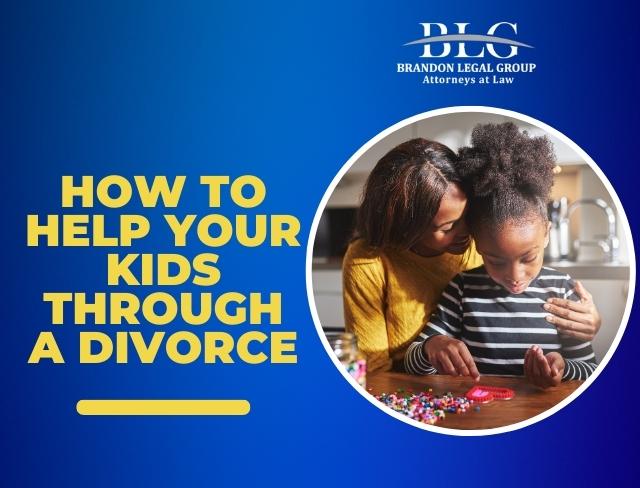Divorce isn’t just a legal separation between two people; it’s a seismic shift in the foundation of a family, especially for children. With over 1 million American children witnessing their parents’ divorce each year, understanding how to navigate this change is crucial for the well-being of our youngest and most vulnerable.
Understanding Your Child’s Perspective
Children see the world in stark contrast to adults; their experiences are more vivid and emotionally charged. During a divorce, they may feel a storm of emotions—confusion, guilt, fear, and sadness. It’s essential to address these feelings with empathy and patience.
Age-Appropriate Communication About Divorce
Explaining the situation to your child requires care. What you say to a five-year-old will differ greatly from a conversation with a teenager. The key is honesty, simplicity, and reassurance.
The following is a DRAMATIZATION AND IS NOT AN ACTUAL EVENT: “Mom and Dad won’t be living together anymore, but we both love you very much,” explains Sara to her six-year-old, Lucy, as they look through a family photo album, reinforcing the message that while homes may change, love does not.
Strategies for Supporting Your Children
Children thrive on routine and predictability, two things that are disrupted during a divorce. Keeping a consistent routine, being present, and providing lots of love and support can mitigate the stress of the changes.
Professional Support for Children
It’s okay to seek help. Child psychologists and family therapists can provide your child with an outlet to express their feelings and learn coping strategies.
Legal Considerations for Your Children’s Wellbeing
Navigating the legal landscape of divorce can be as complex as it is emotional. Making informed decisions that prioritize your children’s well-being is a task that requires not only legal expertise but also a compassionate understanding of family dynamics.
It’s crucial to work with a divorce attorney who is not just well-versed in family law, but also sensitive to the needs of your children. An attorney can help clarify how decisions made today will affect your child’s future, from custody arrangements to visitation schedules, and even how educational expenses will be handled. They will help ensure that the voice of your child is heard and their rights are fully represented in all legal proceedings.
Moreover, a skilled attorney can facilitate a smoother negotiation process, striving for a settlement that minimizes conflict and promotes a cooperative co-parenting environment. They can also assist in modifying existing child support or custody agreements as your children’s needs evolve over time.
The following is a DRAMATIZATION AND IS NOT AN ACTUAL EVENT: In the case of Michael and Karen, who were entangled in a disagreement over the education and custody of their 10-year-old son, their attorney played a pivotal role. The attorney provided mediation services that led to a mutually agreed-upon plan, ensuring that their son’s education would not be disrupted by the divorce. The attorney also set up a custody schedule that allowed for equal parenting time and minimal stress for the child.
By engaging an attorney, you can have peace of mind that all legal matters pertaining to your children are handled with the utmost care and professionalism, allowing you to focus on helping your children adjust to the new family dynamics.
Building a New Normal
The end of a marriage marks the beginning of a new chapter. Creating a co-parenting plan that respects both parents’ roles and provides a stable, loving environment for your child is crucial.
Remember to establish new family traditions to help everyone look forward to the future, rather than back at the past.
Encouraging Resilience in Your Children
Divorce can be a difficult time, but it also presents an opportunity to teach your children about resilience and adaptability.
Teaching Adaptability and Resilience
Instilling resilience in your children starts with setting an example. Embrace change positively and encourage your children to express their thoughts and feelings. Let them see you coping and adapting; it will give them the confidence to do the same.
The following is a DRAMATIZATION AND IS NOT AN ACTUAL EVENT: Despite their own emotional turmoil, Mark and Joan made it a point to have dinner with their two children every night, discussing their day and any concerns they had about the changes happening around them. This routine provided a sense of stability and a safe space for everyone to adapt to their new life dynamics.
Taking the Next Step
As you face these challenging times, remember that seeking professional support is a proactive step towards a brighter future for your children.
When and How to Seek Help
If you’re struggling to communicate with your ex-partner or worried about legal proceedings, it’s time to contact a divorce attorney who can put your family’s needs first.
Conclusion
In every heartache lies the opportunity for growth and healing. As you guide your children through the murky waters of divorce, remember that you are not alone. Help is available, and it’s okay to reach out for it. A dedicated divorce attorney can provide the support and guidance you and your children need to emerge from this transition stronger and more resilient.
For the peace of mind that comes from knowing you’re making the best choices for your children’s future, contact us today. Let’s build a brighter tomorrow, together.
FAQs
1. How can I explain divorce to my young child?
Use simple, clear words and reassure your child that both parents will continue to love and care for them. Make sure they understand they are not to blame.
2. How often should I discuss the divorce with my child?
Keep the lines of communication open. Regularly check in on their feelings and thoughts, but also give them space to process.
3. Should I involve my child in the legal proceedings of the divorce?
It’s usually best to shield your child from the legal aspects of the divorce. However, an experienced attorney can provide guidance on when and if a child should have a voice in court, particularly in custody decisions.
4. Can therapy help my child cope with the divorce?
Therapy can be an excellent resource for children during divorce. It provides them with a neutral space to express their feelings and helps them develop coping skills.
